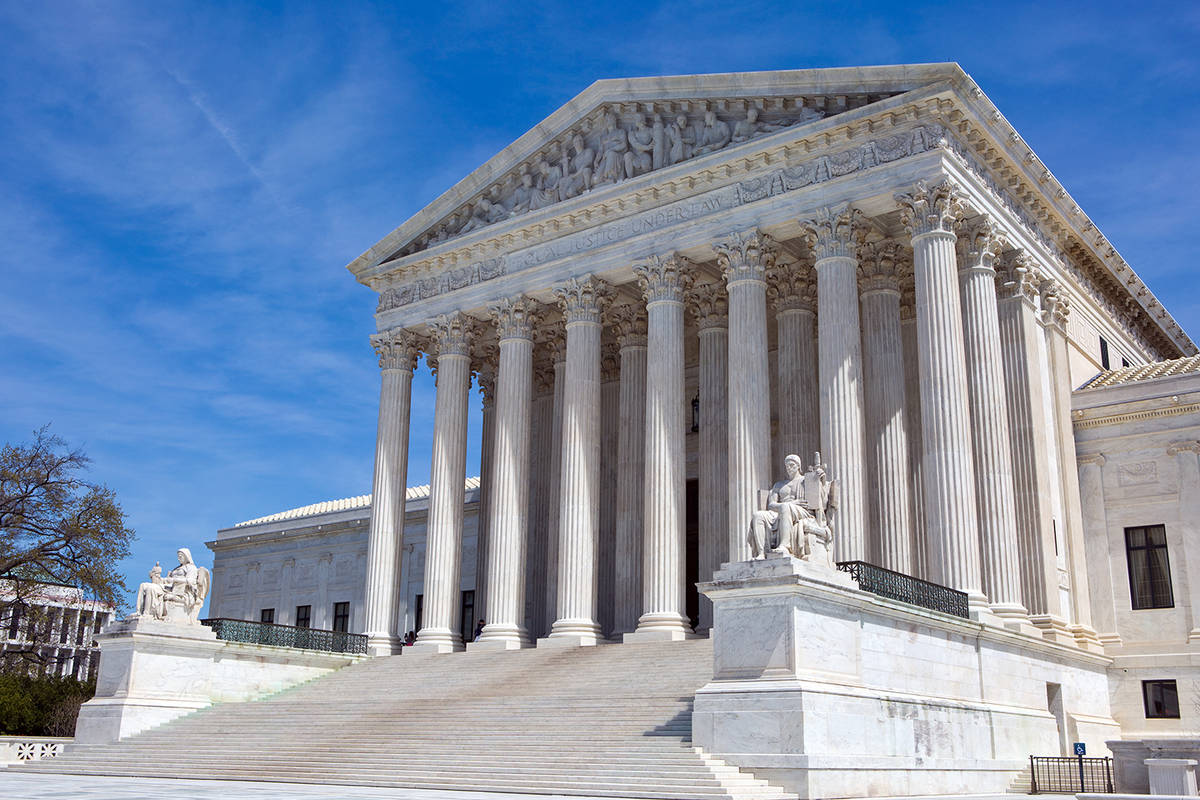Supreme Court declines to lift Pennsylania shutdown
The U.S. Supreme Court has declined to lift Pennsylvania’s coronavirus shutdown after a group of businesses requested that the court halt enforcement of coronavirus-related restrictions on nonessential businesses, according to U.S. News.
A group of businesses asked for a stay to halt the enforcement of the state’s restrictions on businesses, arguing that they have done “substantial, unprecedented damage to the economy.” The high court denied the stay without any reports of dissent among the justices.
The challengers had sought to block the restrictions through an emergency request with the Pennsylvania Supreme Court, but that court also declined to lift the order.
The petition, “Friends of Danny DeVito, Kathy Gregory, B&J Laundry LLC, Blueberry Hill Public Golf Course &Lounge and Caledonia Land Company v. Tom Wolf, Governor, and Rachel Levine, Secretary of Pennsylvania Department of Health,” was docketed April 27. The petition was filed with the state court March 24, and the court denied all claims sought by the petitioners April 13.
In a concurring opinion, the chief justice of the Pennsylvania court expressed concern that while the business closures were temporary, “this may in fact not be so for businesses that are unable to endure the associated revenue losses. Additionally, the damage to surviving businesses may be vast.”
The petitioners quoted that opinion in their request for a stay and also noted that the lack of judicial review for businesses denied a waiver was unprecedented and “constitutes a serious denial of the constitutional rights of petitioners and tens of thousands of Pennsylvania businesses.”
“The Executive Order and similar orders by governors across the country is doing substantial, unprecedented damage to the economy,” the petitioners wrote. Noting that most states had similar orders in place, the petition argued “this case not only has great significance to the people of Pennsylvania, it has great significance to business owners throughout the U.S.”
In response, the state said “non-life-sustaining businesses” were ordered to close temporarily so they “would not serve as centers for contagion.” The state told the U.S. Supreme Court that the Pennsylvania Supreme Court had “unanimously agreed that the governor, under Pennsylvania law, had authority to enter the Executive Order, that the Order was a lawful exercise of Pennsylvania’s police power, and that the Order did not violate Applicants’ constitutional rights.”
The state’s response added that because of the order enforcing social distancing, Pennsylvania “slowed the spread of the virus and reduced its death toll.”
The petition noted that the governor had set up a waiver process through which businesses and other entities could apply for waivers from his “non-life-sustaining” list, with 42,380 requests filed with the state Department of Community and Economic Development. At the time of the filing, the petition stated 7,837 had been approved, 18,746 had been rejected and 14,471 had been found to not require a waiver for the activity the filer wanted to perform.
At the same time the petitioners asked for a stay from the U.S. Supreme Court, they simultaneously filed a petition for writ of certiorari, asking it to “review and reverse the lower court’s” order and strike down the Executive Order as unconstitutional, claiming it caused “irreparable harm,” citing economic and unemployment statistics in Pennsylvania as well as noting the estimated $2.7 to $3.7 billion shortfall in the state’s budget.
Wolf issued the closure of “non-life-sustaining” physical businesses to close March 19. But Wolf has started to reopen parts of Pennsylvania, though he has said there’s “no schedule” for further reopening.
This was the first time the Supreme Court was asked to weigh in on virus-related restrictions imposed by a governor. The challengers, which included a local Republican candidate, a golf course, a laundromat and a timber company, have argued the order violates their constitutional rights.
Protesters are pushing back on stay-at-home orders and the closure of nonessential businesses around the country despite the number of virus cases and deaths continuing to increase. Some states that have begun to see a downward trend have begun to ease restrictions and slowly allow previously closed businesses to reopen.

















